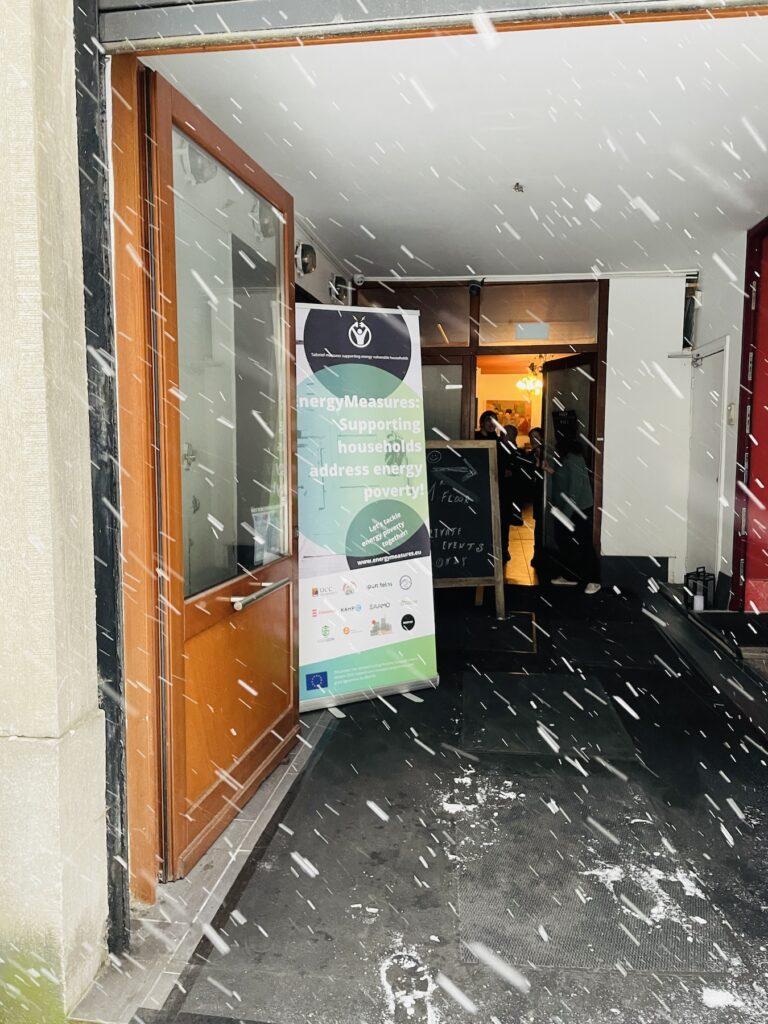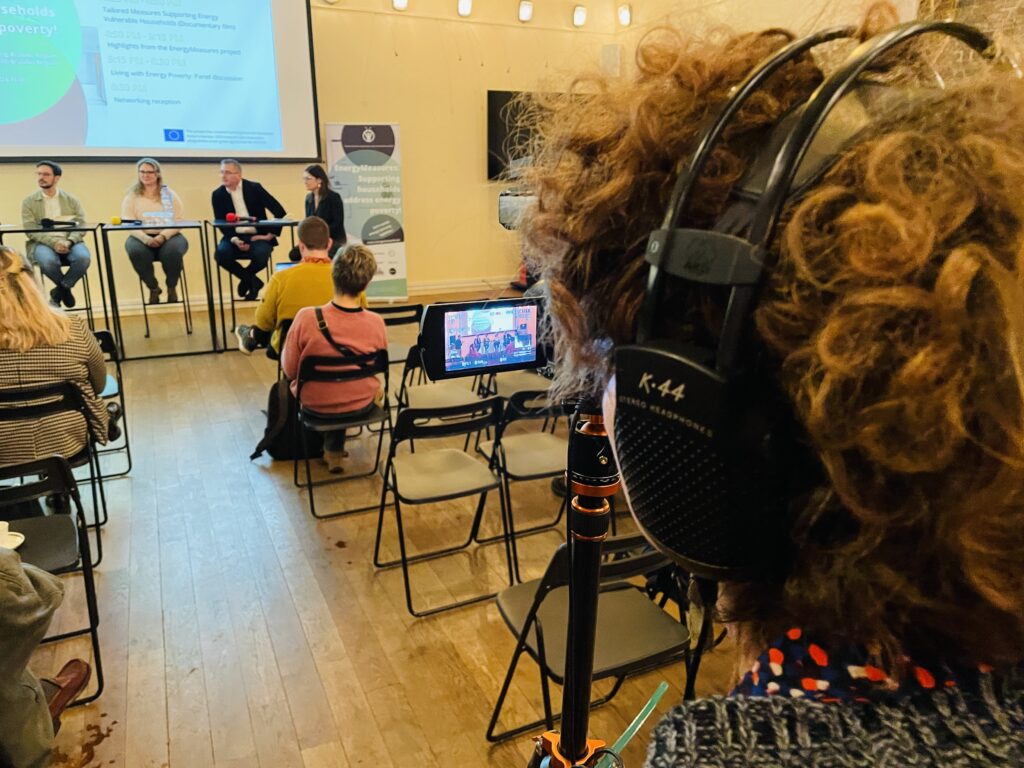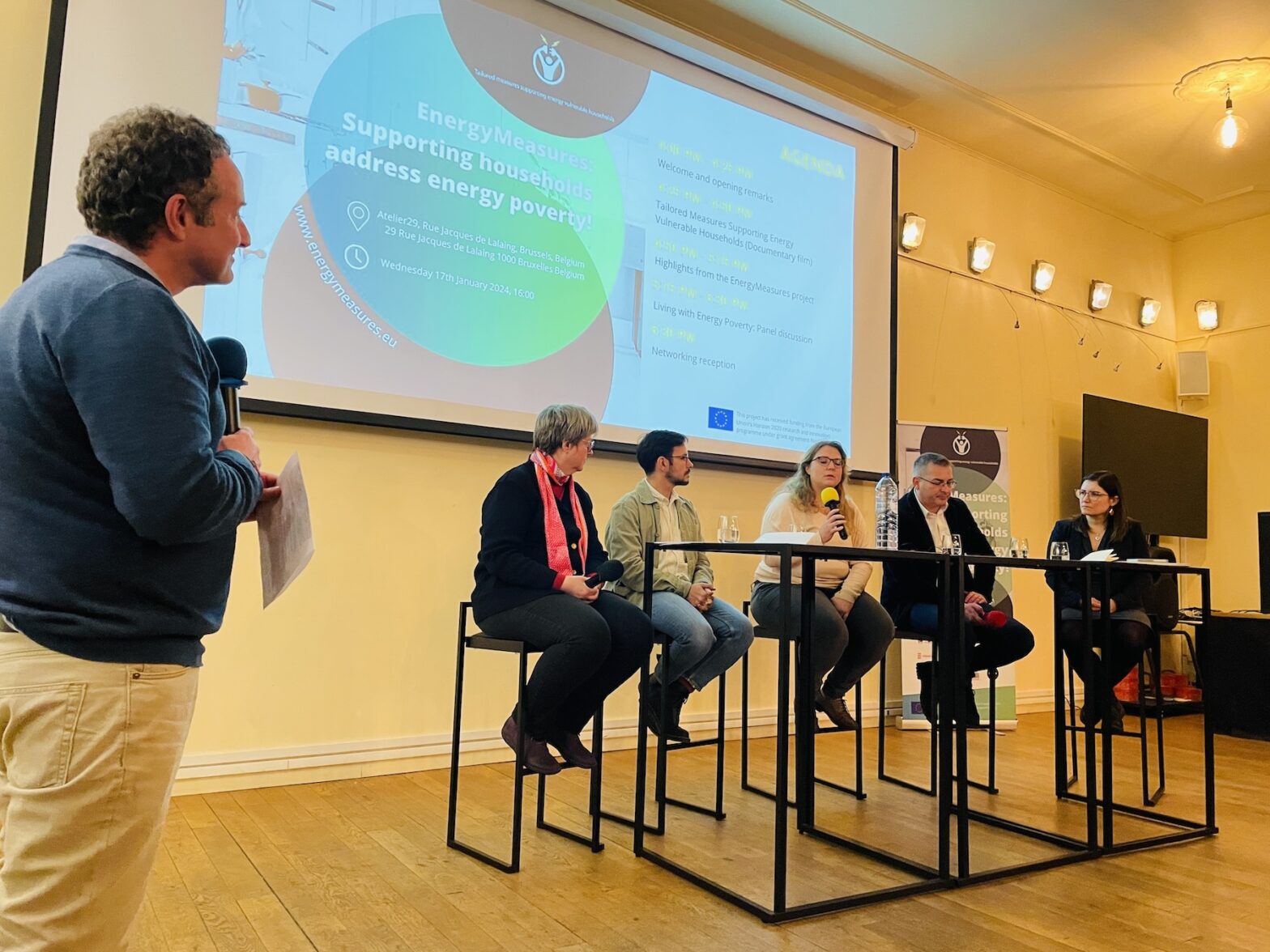In a recent panel discussion in Brussels, experts followed the invitation of EnergyMeasures to discuss ways to tackle energy poverty. They shed light on the complexities and potential solutions for one of Europe’s pressing energy related challenges.
The conversation sparked with Prof. Ute Dubois, an Associate Professor at ISG International Business School, Paris. Prof. Dubois painted a vivid picture of the hurdles faced in addressing energy poverty: “There is a lot of stigma associated with energy poverty. One of the main challenges for us is the entry point.” Her words highlighted the critical need to break through societal barriers and reach those who may be unaware of the assistance available to them.

Dr. Paola Velasco-Herrejón, a Marie Skłodowska-Curie Research Fellow at the University of Oslo, introduced a global perspective into the discourse, emphasizing the importance of empowerment: “Citizens should believe they are capable of understanding and facing their energy situation.” Dr. Velasco-Herrejón’s interdisciplinary approach illuminated the interconnected nature of energy challenges and the potential for inclusive, empowering solutions. Velasco-Herrejón is a co-editor of the recently published book ,Living with Energy Poverty – Perspectives from the Global North and South’.
Strategies beyond emergency measures and subsidies
Dora Biondani, a Senior Project Coordinator for the Energy Poverty Advisory Hub passionately advocated for collaboration and building on existing experiences: “The core principle is to strengthen the network of actors working on reducing energy poverty among households. To try to capitalize on the different experience we developed through amazing reports and all the different implemented solutions at the municipal level and try to exchange ideas in order to build upon existing ideas.” Her call for long-term solutions echoed the sentiment that energy poverty demands comprehensive strategies beyond emergency measures and subsidies.

Dr. Eduardo Blanco, a project manager with Energy Cities, stressed the need for comprehensive, stem-level solutions: “Energy poverty is being tackled by municipalities through policy changes and business models; however, it is a stem problem and it requires stem solutions.” His vision for positive and clean energy districts exemplified a commitment to positive, impactful change at the community level.
The importance of a clear definition
The discussion took a local governance turn with Dr. Dragomir Tzanev, Executive Director of the Center for Energy Efficiency EnEffect. Tzanev emphasized the critical role of local authorities in building trust and motivation: “If you include local authorities in the whole process of reducing energy poverty, it increases the trust of people in this process. That pays out in much more motivation towards renovation of apartment buildings.” His insights underscored the importance of a clear definition to design systematic approaches: “A definition of energy poverty is very useful when you have to design a systematic approach to solving this issue. You should be able to clearly define who needs to be approached in this process.”
The exchange of ideas from the discussion in Brussels highlighted the urgency of a collaborative, multidimensional approach to confront energy poverty. As Europe charts its course towards a sustainable future, these insights serve as a beacon, guiding the way to a more inclusive and secure energy system.
The panel discussion, moderated by Dr Breffní Lennon of University College Cork, was part of a public event hosted by the EnergyMeasures consortium at Atelier29 in Brussels, January 17th, 2024. The EnergyMeasures project is funded by the European Union.
